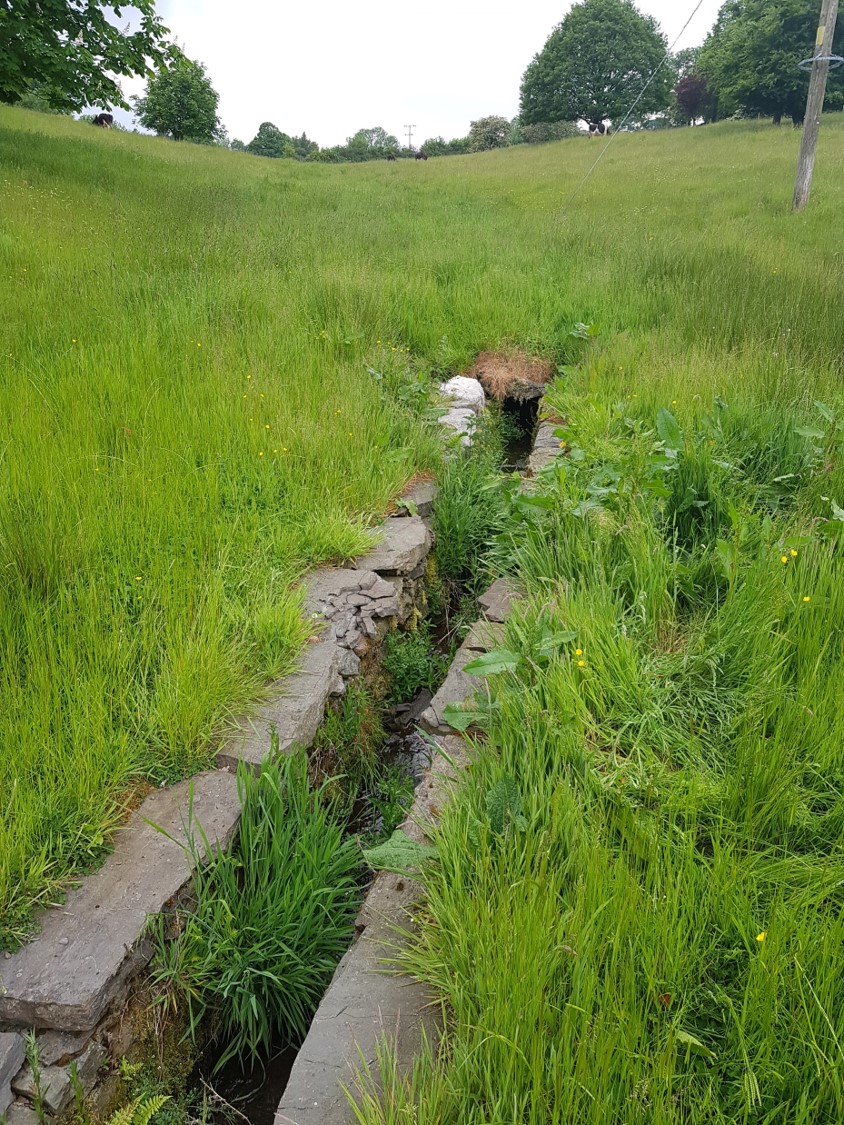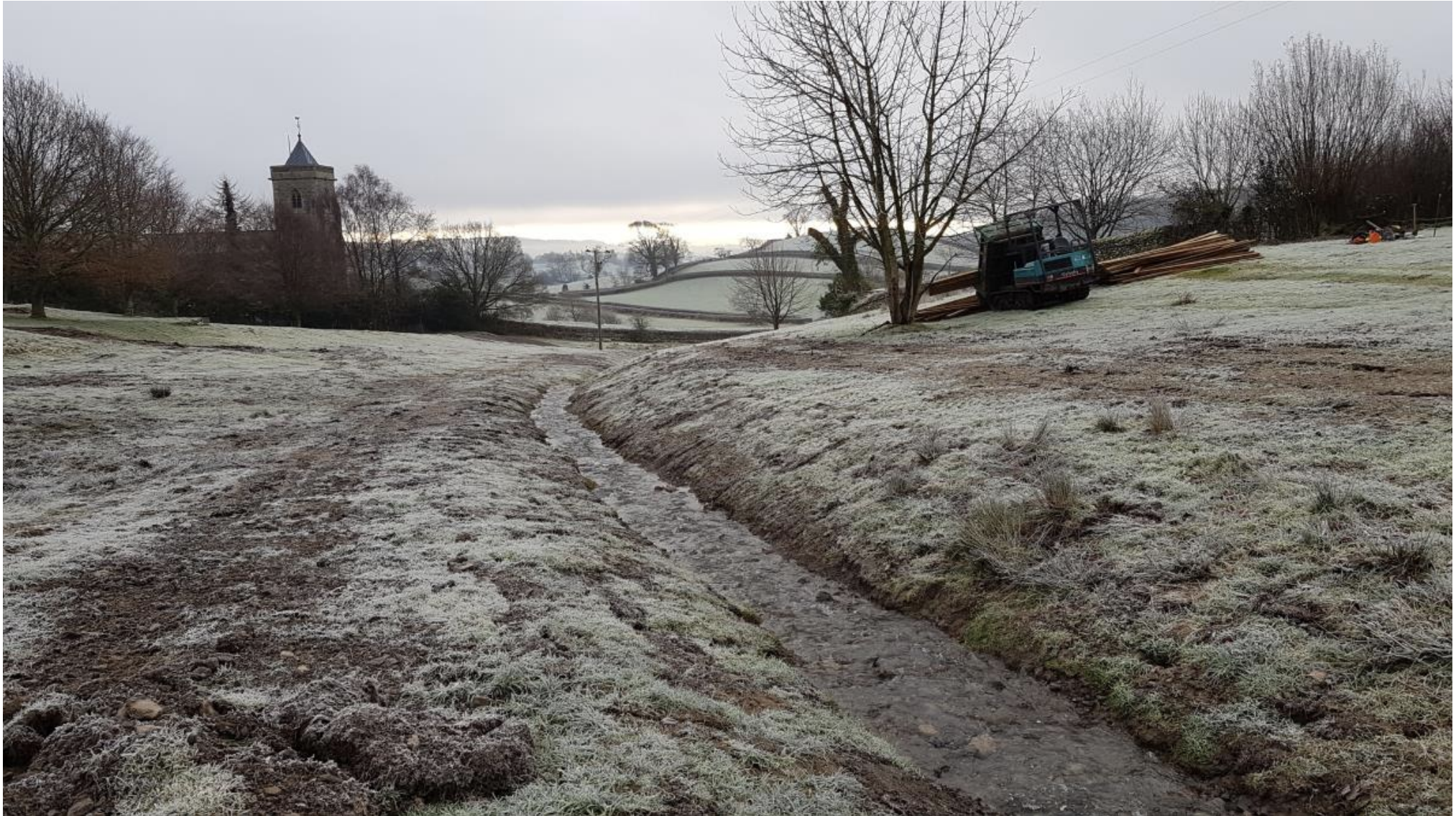Matt Carroll, project officer from the South Cumbria Rivers Trust, shares about the removal.
Introduction
Crosthwaite is a small village situated in South Cumbria within the Lake District National Park. In the village lie two fields that form the site of this deculverting project. The aim of the project was to create brand new freshwater and riparian habitat by opening up a culverted beck. This beck has remained in darkness under the surface since the 1800’s, constrained by large rocks and slate. Due to its age, the culvert was failing in numerous places along its length, causing high flow events to burst through and spread gravels onto the surrounding fields.




